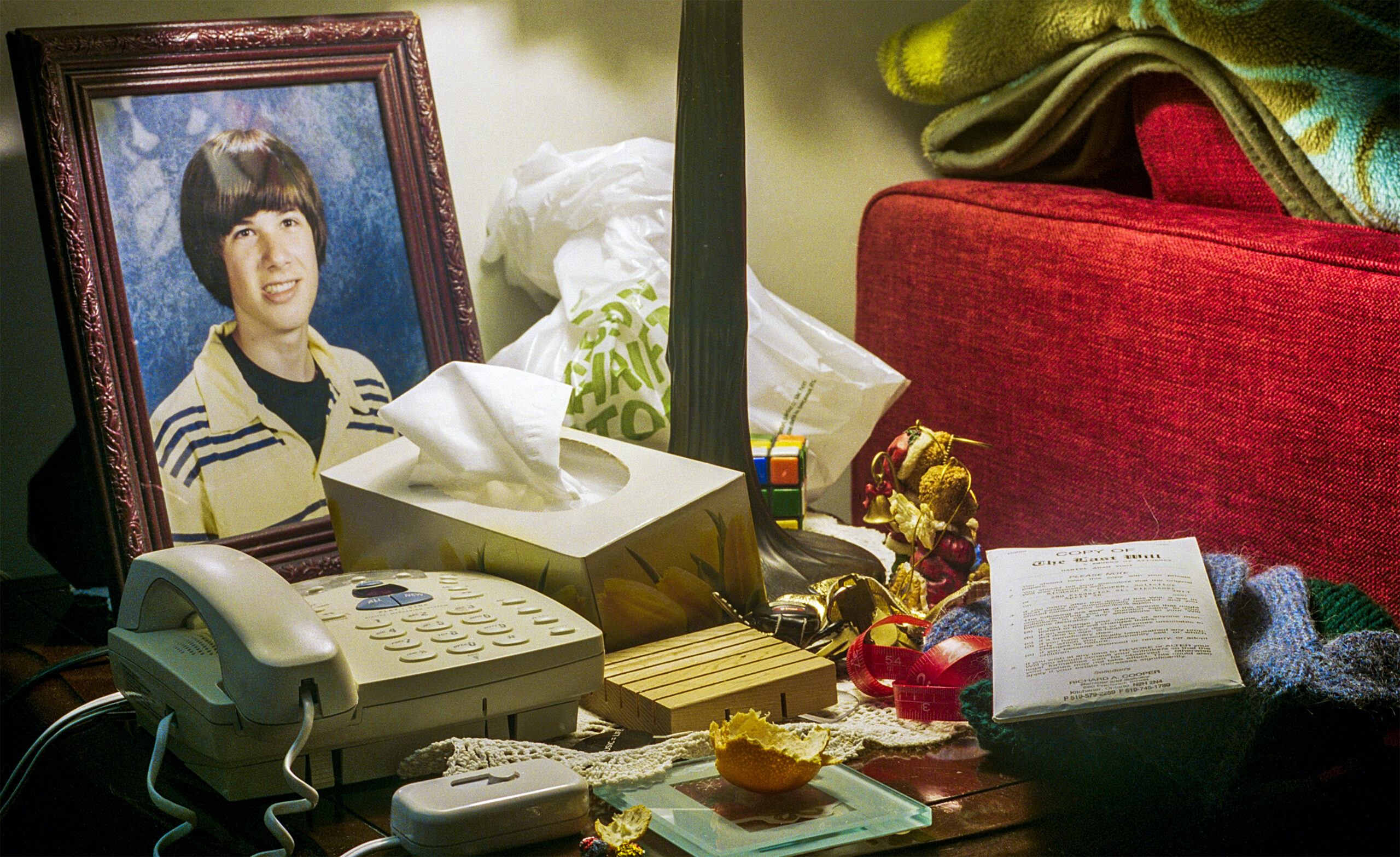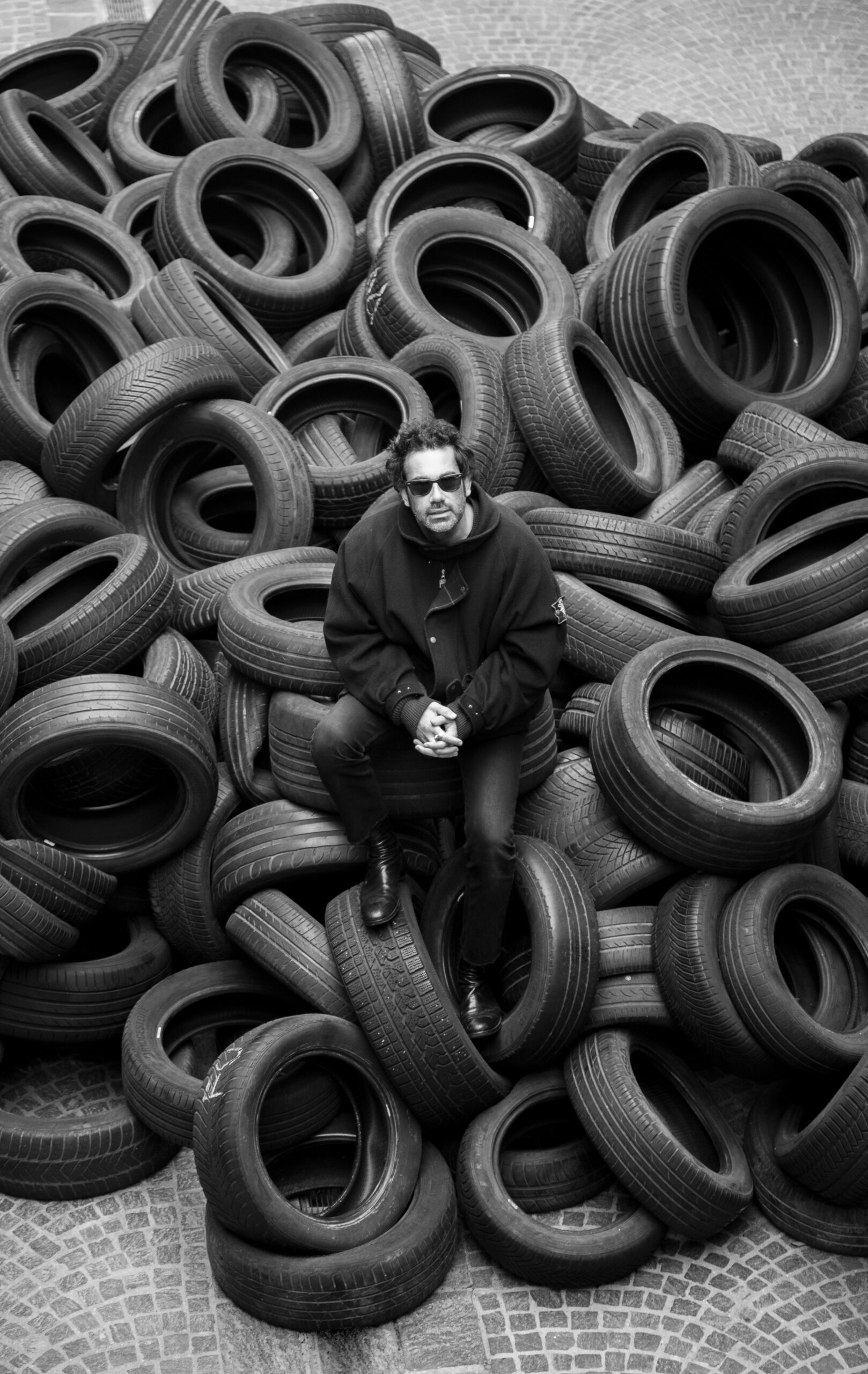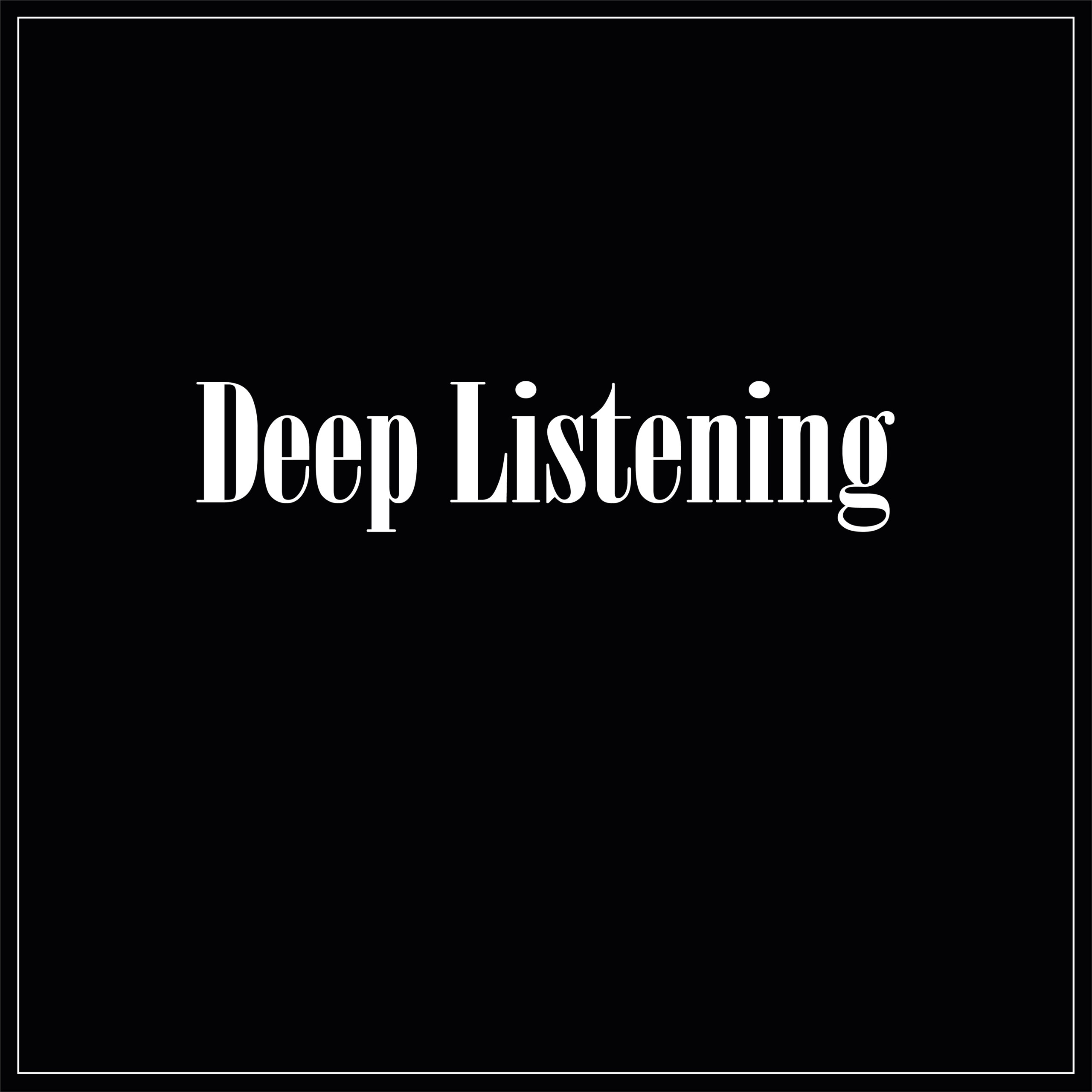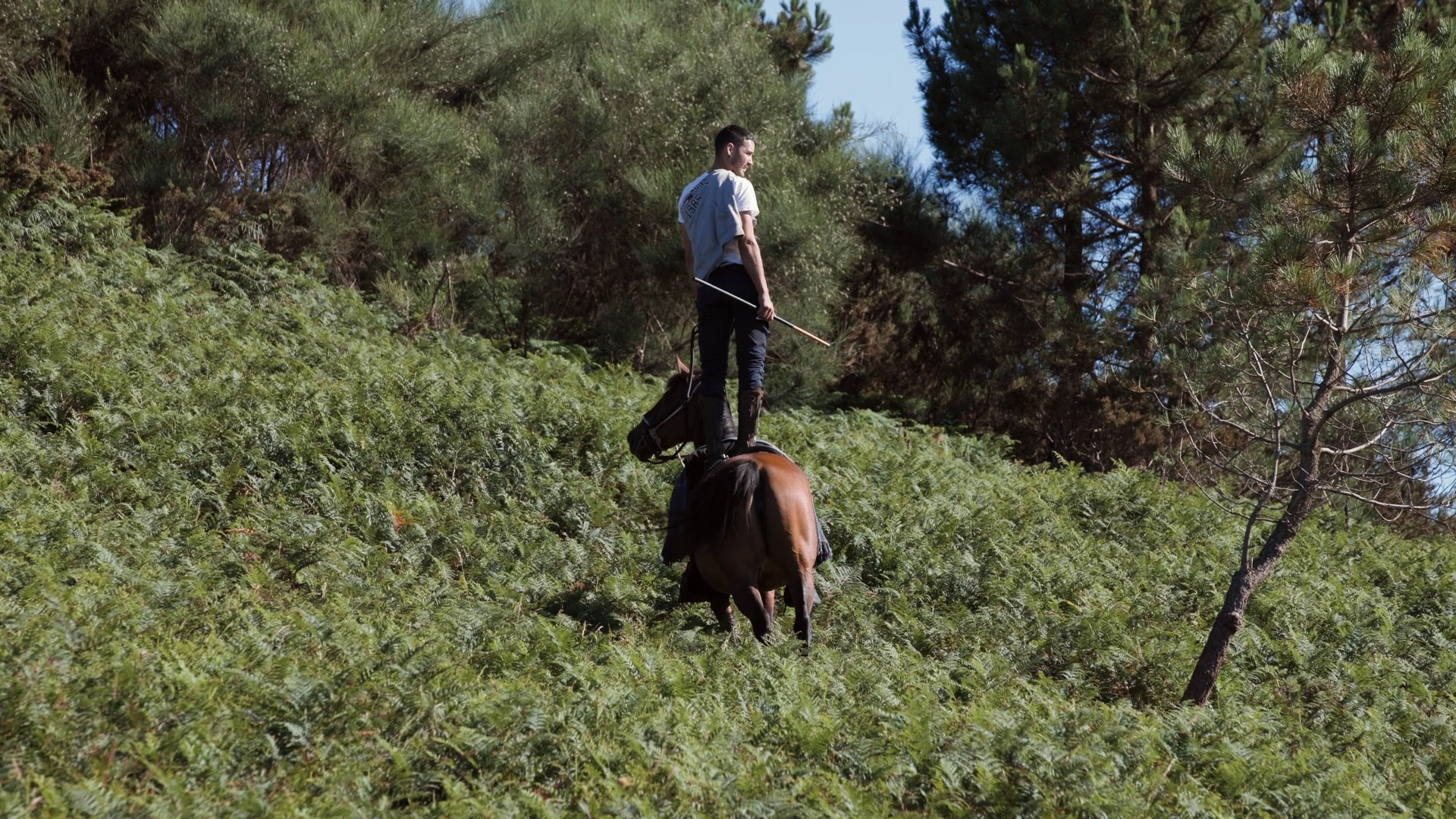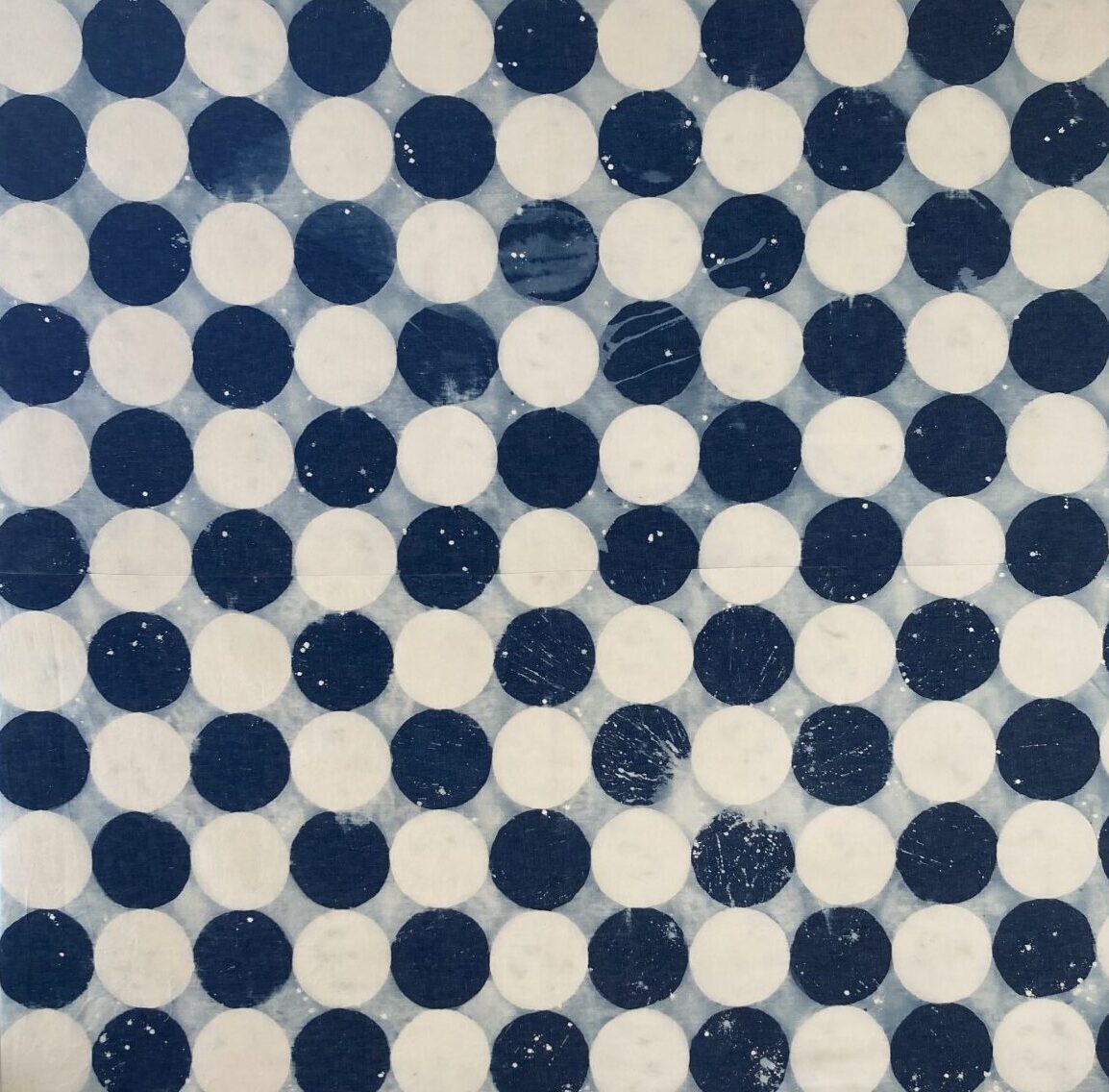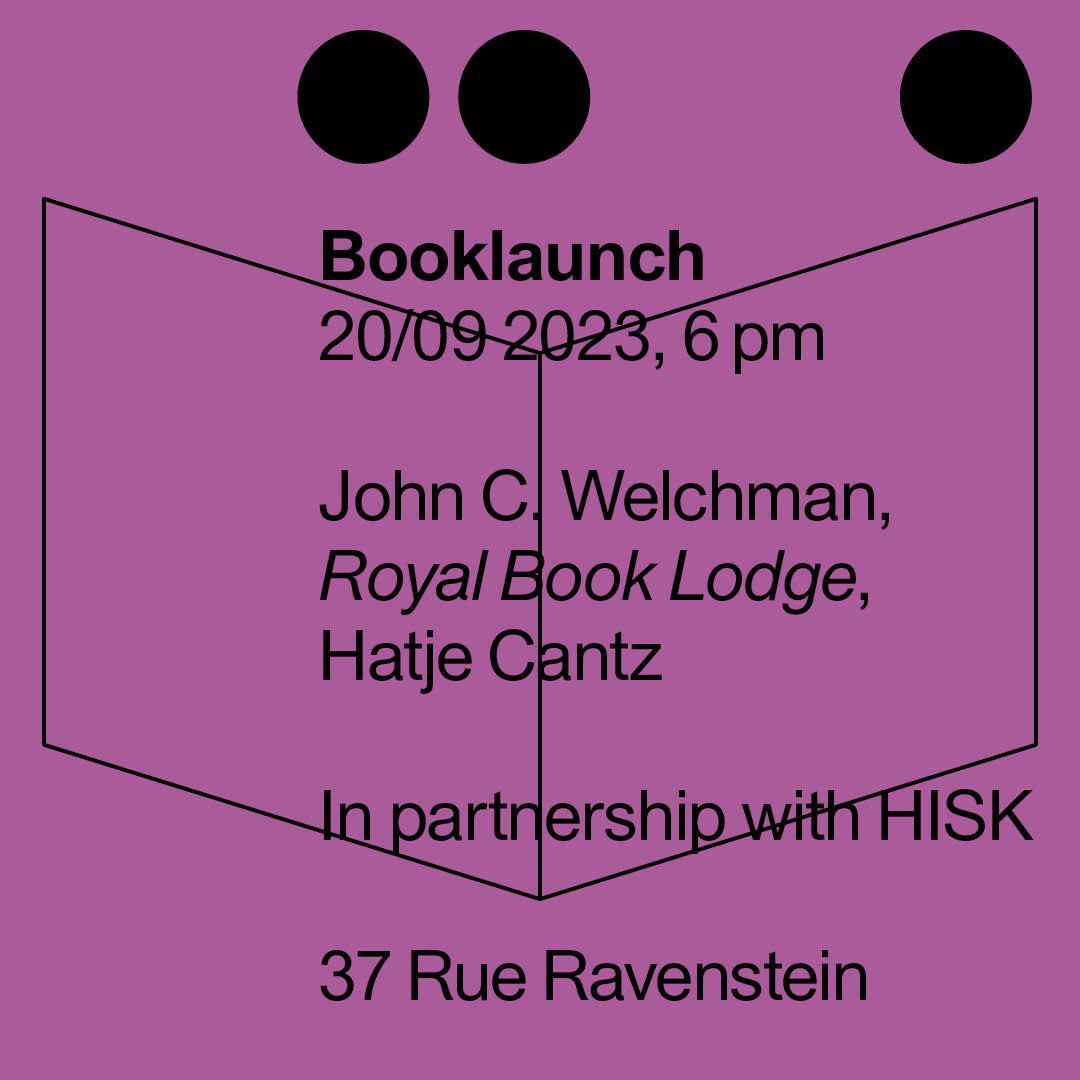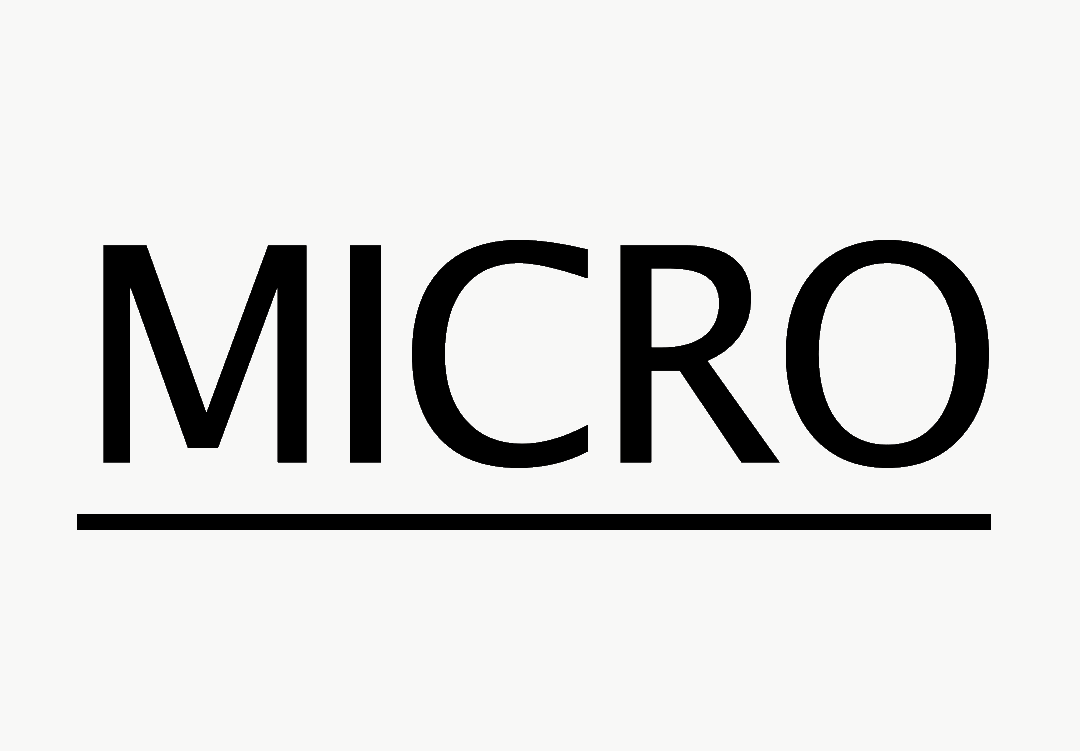Coming up:
Exhibition
06/03/20206 - 02/05/2026
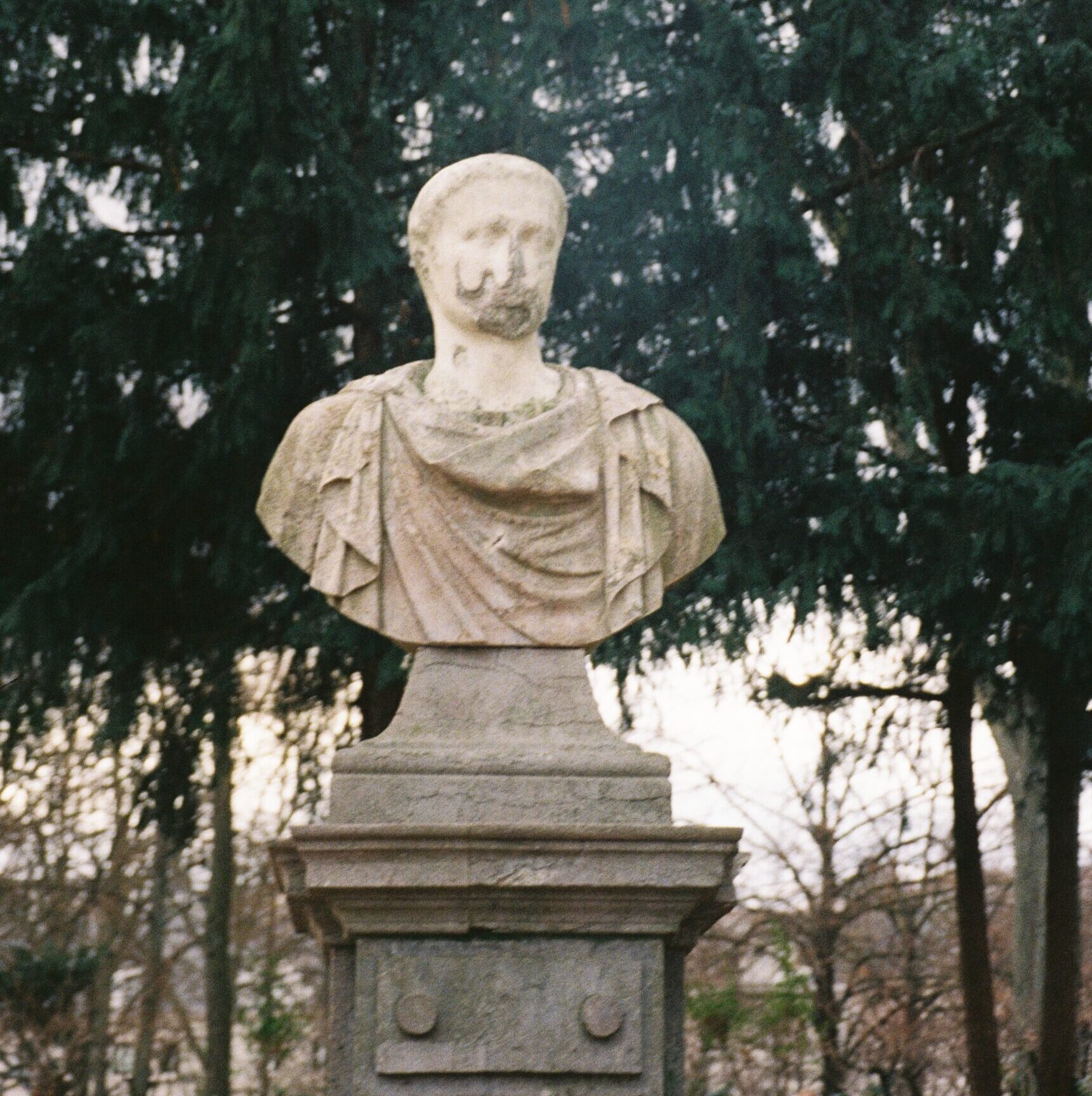
Recognitions
Ryan Cullen
KIN is excited to announce our upcoming exhibition with Ryan Cullen opening on Friday, March 6 from 6-9 pm.
“Every week or so he would begin something original. It would last for a few days, but before any lines of completion had been drawn he abandoned it. Still the copies continued to perfection, that perfection to which only counterfeit can attain, reproducing every aspect of inadequacy, every blemish on perfection in the original.”
Ryan Cullen’s (*1992 in Boston, USA) artistic practice draws on a variety of cultural and material sources, focusing on the production of images and objects that reflect the effects of ideology on individuals and societies. Cullen studied at Cooper Union in New York and the Städelschule in Frankfurt. His work has been shown in solo and group exhibitions, including KIN, Brussels, BE (2025); Briefing Room, Brussels, BE (2023); Musée La Boverie, Liège, BE (2022); Situations, New York, US (2021); CLEARING, Brooklyn, US (2019); Nassauischer Kunstverein, Wiesbaden, DE (2018); Etablissement d’en Face, Brussels, BE (2018); Portikus, Frankfurt am Main, DE (2017); Museum für Moderne Kunst, Frankfurt am Main, DE (2017). Upcoming exhibitions include Z33, Hasselt, BE (2026) and MARTa Herford, Herford, DE (2026). In 2026, Ryan Cullen received the Ars Viva award.
Exhibition
16/01/26-21/02/26
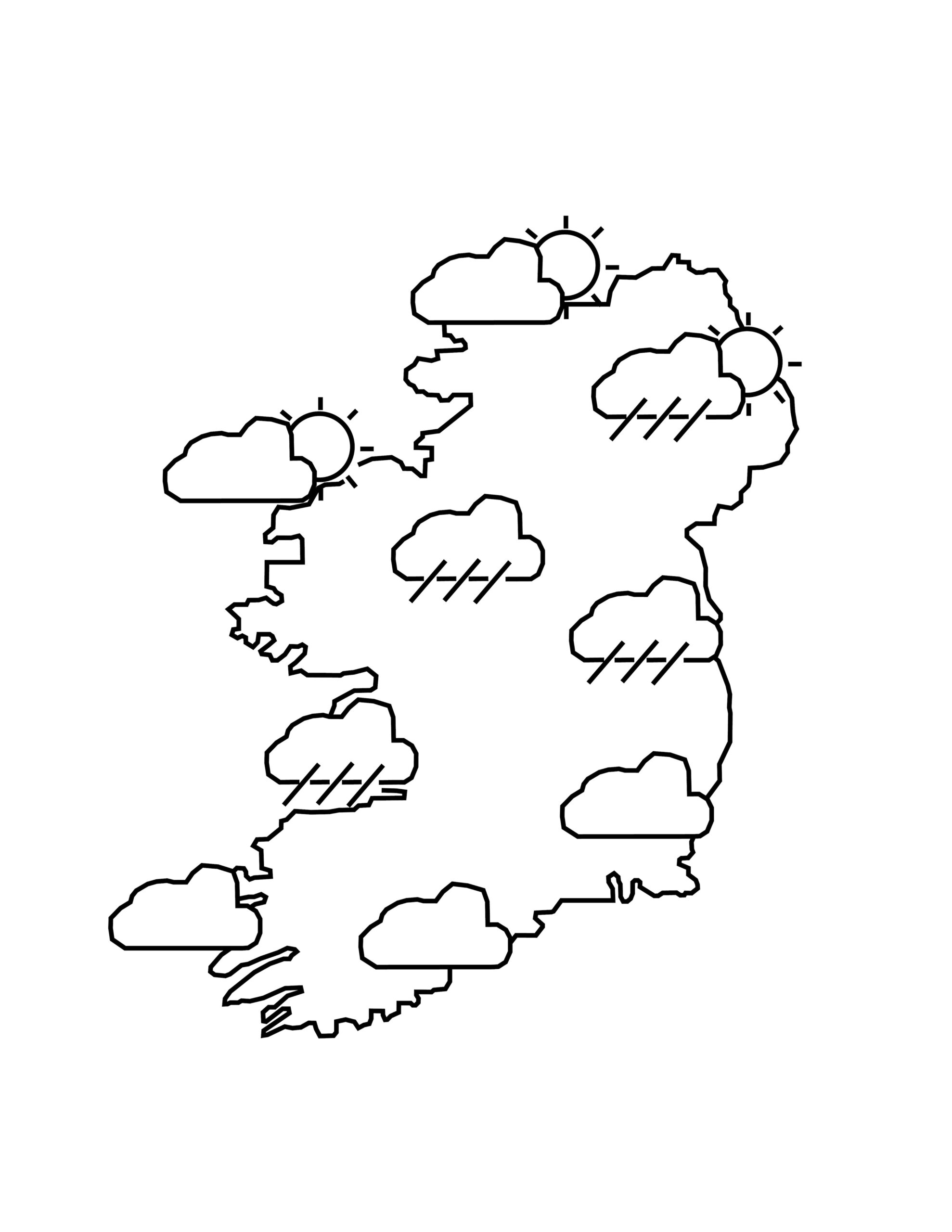
LA MERVEILLE DE LA VIE:
Jos de Gruyter & Harald Thys
In the winter of 2009, the decision was made to create 500 pencil drawings, following the principle of “warsprong.” These drawings sketch a picture of life on Earth. In 2010, the drawings were exhibited in Basel and subsequently in Vienna in the year 2014. After this, the drawings were stored in cardboard boxes for preservation in a state archive. The collection was recently rediscovered during work in the archive. For the exhibition La Merveille de la Vie, a selection of some 140 drawings was made, offering a glimpse into the most striking features of life on Earth.
Art Cologne
November 6-9, 2025
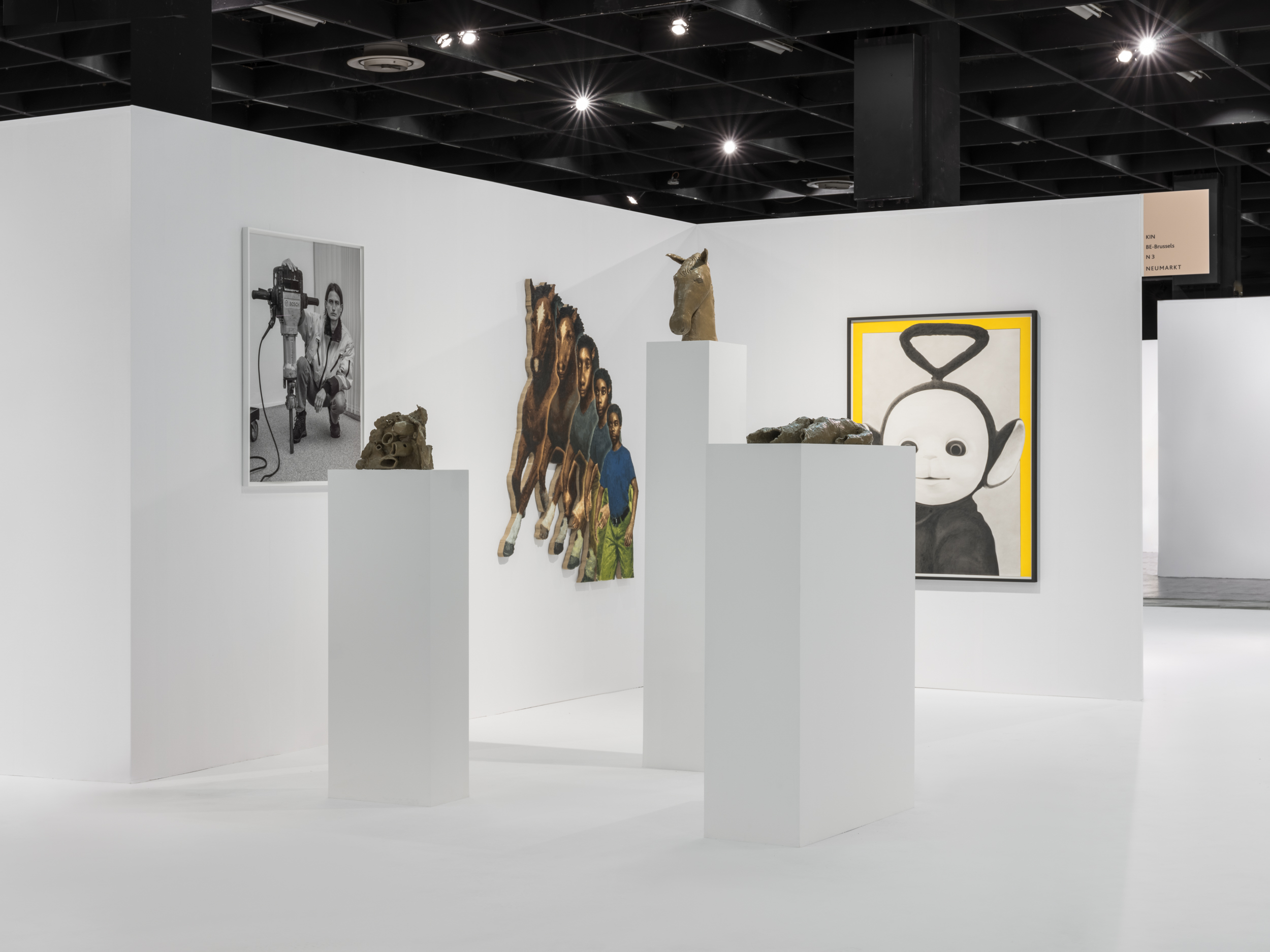
Art Cologne 2025
At Art Cologne, KIN presented a group presentation of the gallery’s programme. Featuring works by Jos de Gruyter & Harald Thys, Shaun Motsi, Andrzej Steinbach and Angharad Williams.
Exhibition
30/10/2025 - 20/12/2025
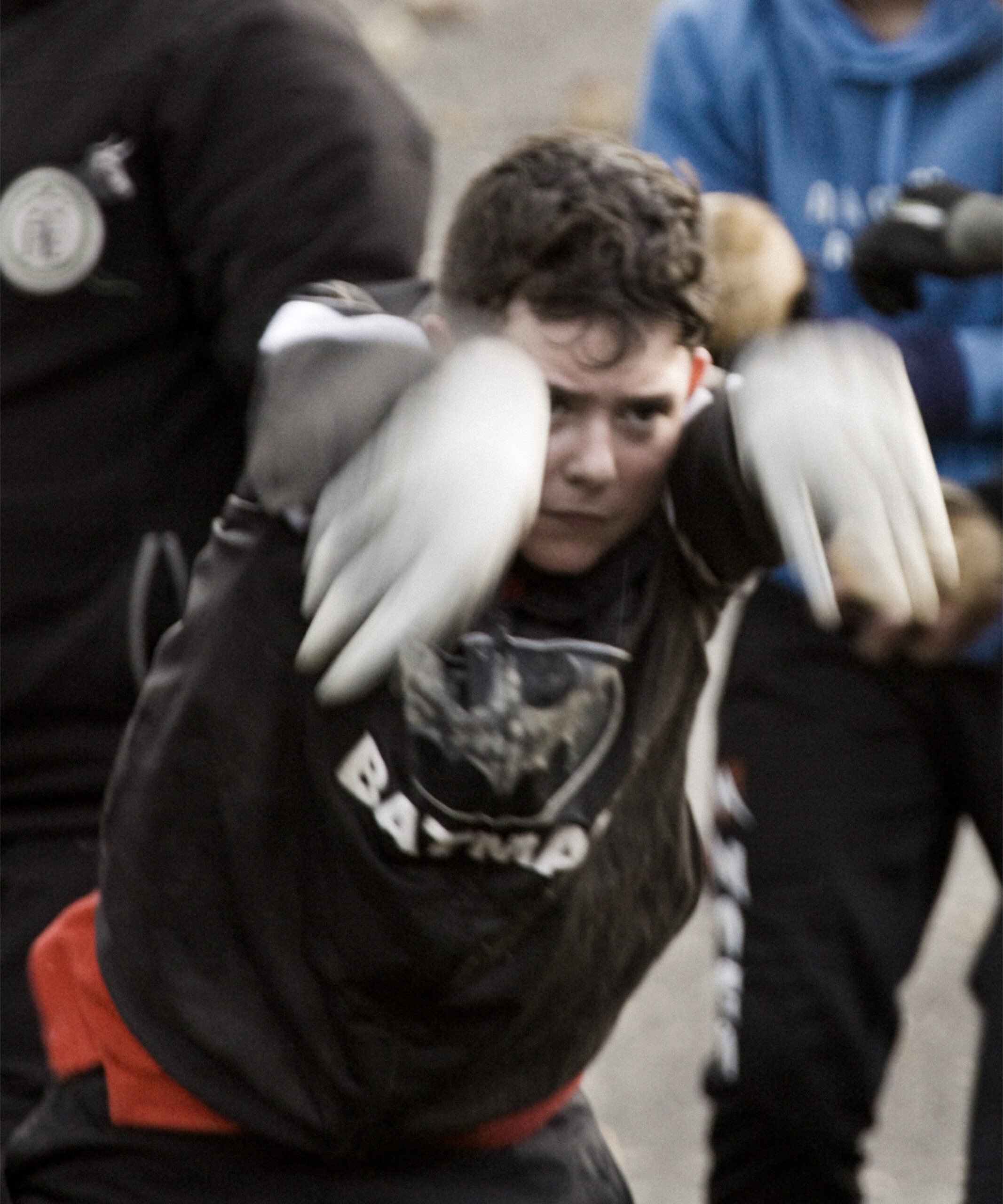
Barrage
Yalda Afsah
For more than a century, the town of Ploral, in the southwestern Spanish region of extremadura has celebrated the idiosyncratic Jarramplas festival. Its protagonist is the costumed “el Jarrampla”, whose name derives from the Spanish word “arramplar”, meaning to steal. Legend has it that he was a man who came to the town to steal the ranchers’ animals. But he underestimated the ferocity of the locals who bombarded him with turnips until he fled. Every year in January, the townspeople re-enact the event, with one male citizen in costume with carbon fibre armour underneath) playing the Jarramplas and hundreds of others pelting him with turnips. German-Iranian artist and filmmaker Yalda Afsah’s Jarramplas observes the annual event and its performance as well as the social context it is informed by, subtly building tension as teenagers gather in the streets, tractors deliver tones of turnips and crowds form until the fight begins.
Exhibition
04/09/25 - 18/10/25
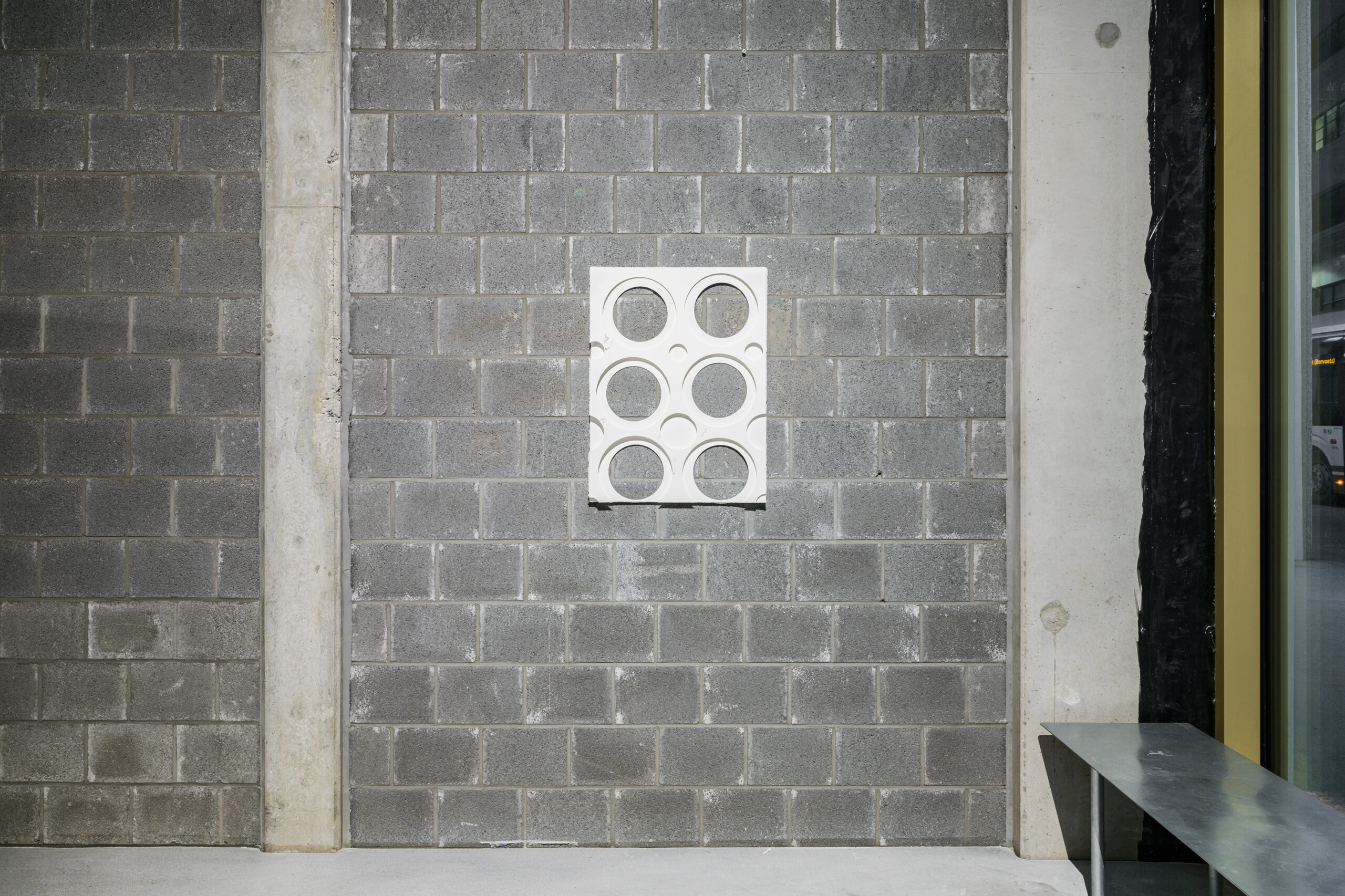
Spectacles
Shaun Motsi
In Spectacles, the artist brings together a new body of work that extends his thinking across cut-outs, drawings, sculptures and videos. The exhibition title holds a double meaning. On the one hand, the word refers to the charged appearance of something extraordinary like a staged event or an image that seizes the gaze. But on the other hand, spectacles frame, distort, and direct vision, functioning as optical tools.
Basel Social Club
June 15-21, 2025

Basel Social Club 2025
At Basel Social Club, KIN presented works by Ryan Cullen. Cullen’s series of still life paintings of plastic water bottles are meditations on the labor of painting. In his recent exhibition Protestantism in Painting, curated by Nelson Beer, the artist reflected on the endless reflections of the medium of painting through the sociological lens of “work” and its relationship to protestantism. In his bottle works, the artist renders light refracted through various brands of bottled water. Light bounces off the plastic medium and creates vibrant refraction. This interplay emphasises how perception, materiality, and light converge in painting, drawing attention to the subtle, layered processes that shape visual experience.
Art Fair
June 16-22, 2025

Liste Art Fair Basel 2025
At Liste, KIN presented seven paintings by Shaun Motsi. At first encounter, these oils on linen resemble hazelnut Ritter Sport chocolate bars, sensi- tively rendered in various states of shelf life: broken up, cracked, some pristine. Closer engagement with the glistering surfaces of the paintings reveals a deft use of loose brushwork to create their delectable textures and mounds and suddenly the motif dissolves into a layered mass of casual mark-making. There is a deceptiveness in the apparent simplicity of these works, hiding in plain sight the fact that they are the distillation of a multitude of references and metaphors. Art historically they deal in the Renaissance techniques of brunaille underpainting and trompe l’œil. Conceptually they borrow from the anti-colonial phi- losophy of Édouard Glissant and his clarion call for ‘the right to opacity for everyone.’ As Glissant stated ‘I no longer have to ‘understand’ the other, that is, to reduce him to the model of my own transparency, in order to live with this other or to build something with him…’
Exhibition
05/06/25 - 19/07/25

Less stale attachment
Simon Denny
Simon Denny’s installation Less stale attachment was first exhibited in 2006 at the Govett-Brewster Art Gallery in New Zealand. The installation was shown as part of a group exhibition called Break: Construct that invited nine emerging artists in the region to exhibit work around the ideas of experiential and environmental totality. Drawing inspiration from the collaged environments of Dadaist Kurt Schwitters alongside Frederick Kiesler’s Galaxies, the exhibition examined how materials and their contexts are shaped by their quotidian environments. At KIN, the exhibition is presented as a near-exact restaging of the 2006 installation at the Govett-Brewster Art Gallery. Taking it back to its original form, scale, and sensibility, Denny reflects on the enduring questions that first emerged in his practice.
Art Fair
April 24-27, 2025

Art Brussels 2025
Presentation of Michael Van den Abeele & Laurent Dupont in collaboration with Gauli Zitter.
“Both artists recruit a new kind of headlessness. At first Andy Warhol’s Brillo Boxes and Martin Kippenberger’s pallets, packaging multiples, and oatmeal-and-paint coated Ford Capri might come to mind, but the mood here is humble, there is a lack of showmanship, outsourcing, deadpan, or aggression, and rather a willing submission to limitations. The work is quieter, more amateur and industrious than that of artists like Michael Krebber or Lutz Bacher. With programmatic, almost obsessive, practices, Dupont and van den Abeele emphasize the body’s current dissociation from spirit and passion, in a morally decadent age marked by extreme consumption but lacking the debauched sensuality of previous cultural declines. These Belgians seem to be interested in blood, sweat, and tears, in conjuring passion through restricted means, and a redemption perhaps acquired through this process.”
Exhibition
11/04/25 - 23/05/25

What are we in now???
Angharad Williams
Muzzle Velocity refers to the speed at which a projectile or bullet exits the barrel of a firearm or artillery. Sixty-five rounds per second is currently the fastest rate for a traditional firearm. It’s also the title of the 9-minute, 40-second 4K video featured in this exhibition. In the video, I (Angharad), along with three friends, silently fly over Brooklyn in a helicopter, heading toward a landing pad in Manhattan’s Murray Hill. In 2023 I paid for us to take a helicopter for the first time. The Blade shuttle service is accessible to anyone with some disposable money. You buy the Blade, you buy time. The footage loops: we arrive, then immediately depart. It’s almost impossible to take in New York (America) all at once.
Exhibition
23/01/25 - 15/03/25

Years
Richard Sides
In Years, Richard Sides makes use of the notion of technics popularised in 1994 by Bernard Stiegler. In Stiegler’s view, the technical object is made in-between nature and human intention. It exists as an access point to a temporality that dissolves the distinction between subject and object, between the human and the technical. It is through this logic that Sides arrives at images of cave drawings, quantum computers, and extraterrestrial life. These are connected as the necessary tools needed to operate back and forth across time – not so much in body but in mind. The paintings, on the other hand, develop through a process of accumulating past compositions and previous artworks, and eventually overpainting them with layers of a monochromatic colour.
Exhibition
22/11/24 - 11/01/25

kinship
kinship brings together the diverse works of 30 artists under the leitmotif of the gallery’s founding principle. Through a variety of media, the exhibition delves into kinship as a fluid, contingent structure that reframes social bonds and offers nuanced reflection on affiliation in contemporary society. The exhibition is a tribute to friendship and connection made manifest across our work and our relations. This question of connection, of how we find, make, and remake our relations with others, is explored across a variety of mediums that touch on far-ranging themes, from the generation of empathy to the origins of intimacy and theorizations on the beginning of time. Sometimes this emerges through domestic motifs or in the adaptation of spatial registers that belong to the urban landscape.
Exhibition
12/09/24 - 09/11/24
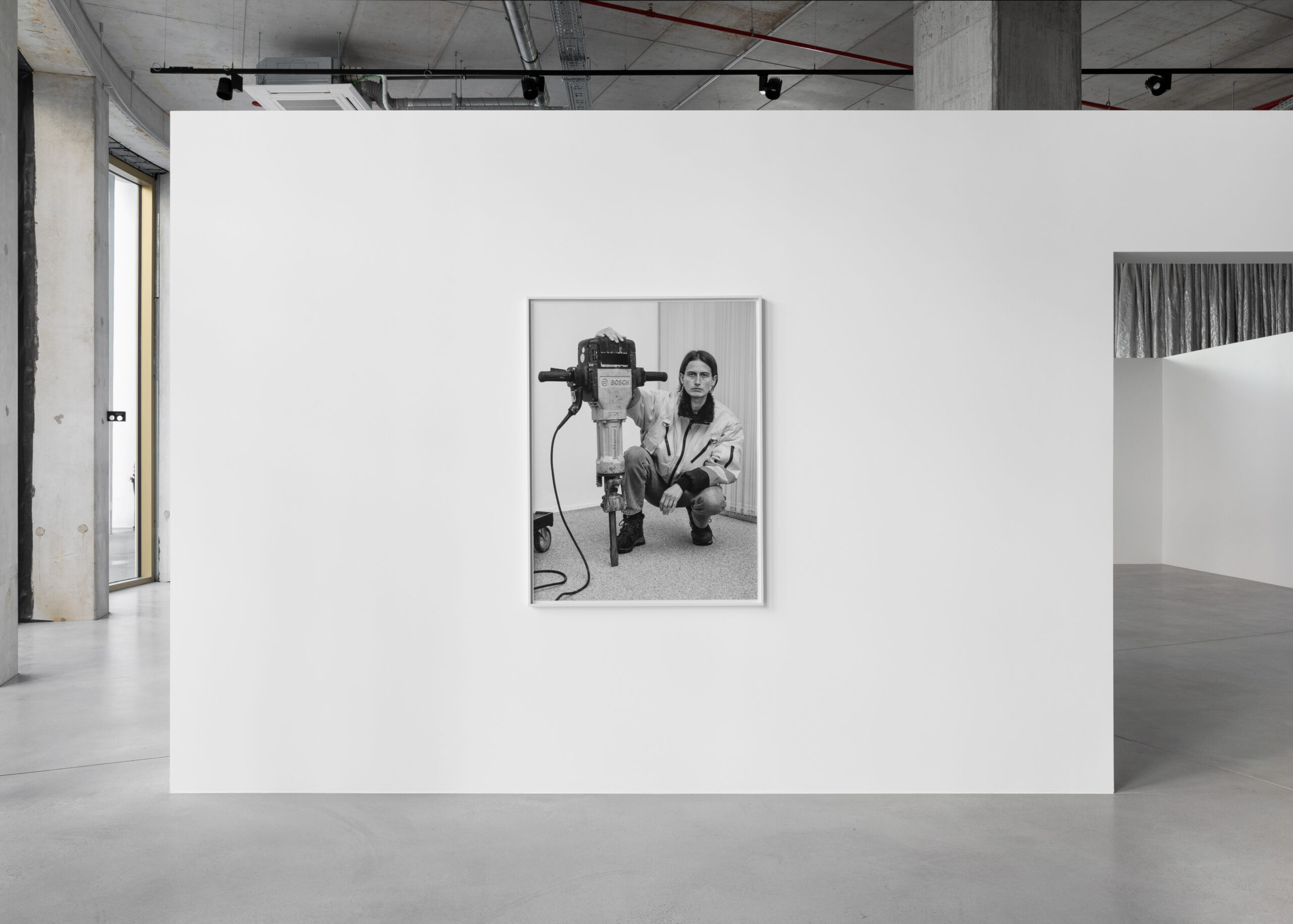
Simultaneous Localization and Mapping
Andrzej Steinbach
Simultaneous Localization and Mapping (SLAM) exhibits Andrzej Steinbach’s latest series Extensions (Erweiterungen), aimed at exploring the intricate terrain where technology and representation of the human form intersect. The exhibition title borrows from a core system in robotics, where understanding and mapping the surroundings whilst simultaneously keeping track of its own location is necessary in order to navigate effectively. This concept matches Steinbach’s approach — a continual re-mapping and exploration, compelling us to question how images are constructed, deconstructed, and reimagined today.
Exhibition
18/06/2024 - 26/07/2024

Locally Hated
Tanea Hynes
The departure point of Tanea Hynes’ work is the awareness of the complex socio-political reality of living within the extractive economy. Hynes grew up in Labrador City, Canada, a town that was founded in the 1960s to accommodate employees of the iron ore mine, which remains the primary industry in the town to this day. Hynes’ work reveals the mundaneness, darkness, and difficulty of place. The city’s inhabitants have a complex relationship to the mine, whose presence looms large in the landscape. Her work explores this relationship and the social reality it reflects, including the complicated interconnections between the city, residents, and this industry.
Exhibition
23/04/24 - 11/06/24
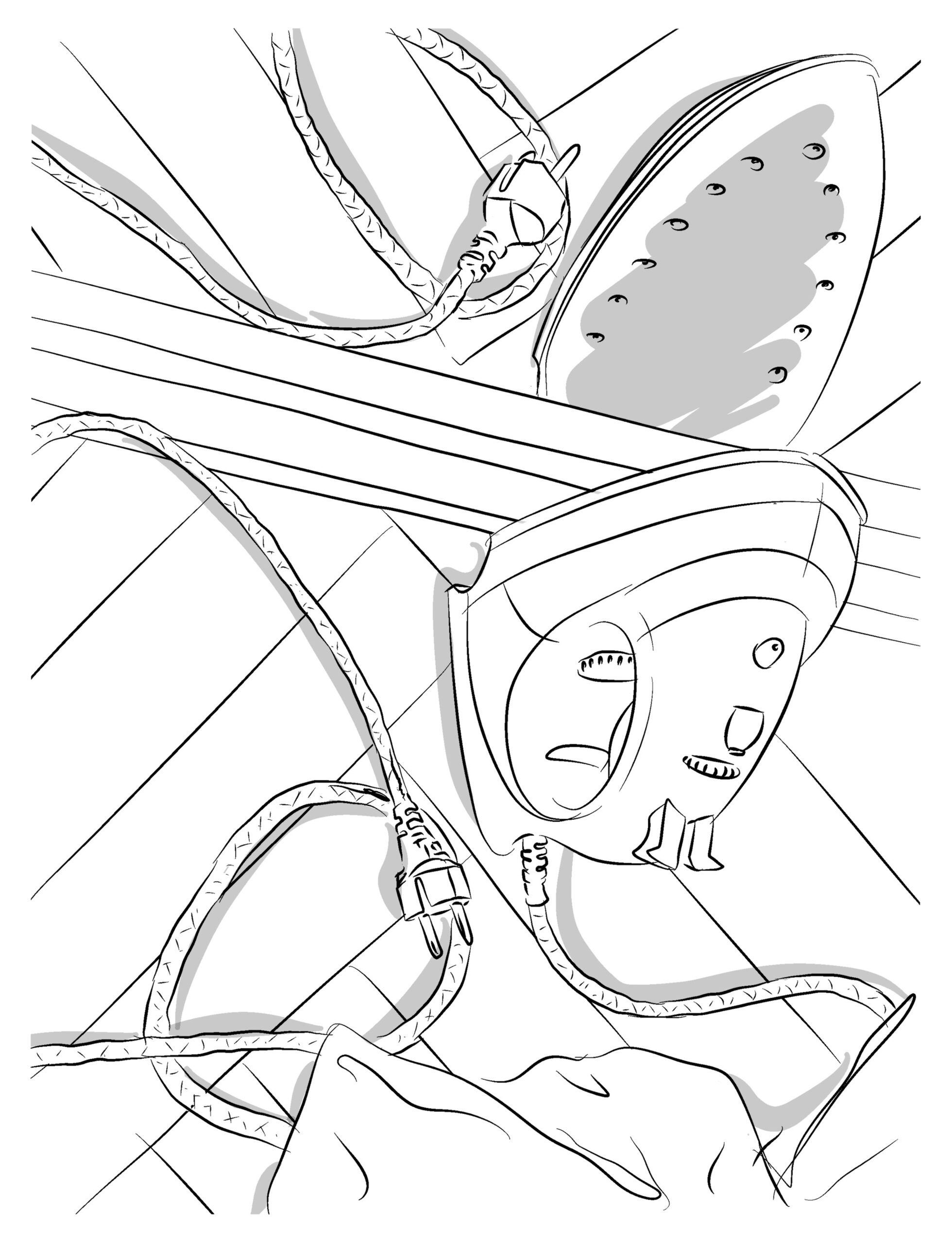
and amputate myself from every function
Michael Van den Abeele
Emancipating function from form is a recurring motif in Michael Van den Abeele’s artistic practice. Often, he begins with a material or motif so wedded to its economic value that their separation comes with tricky conditions. The flat iron is tired of working, the jeans take leave from the domain of workwear and turn to ornament. In a single motion, Van den Abeele unlatches the commodity from the throes of its market and ushers it into a new arena where eros, excess, and mythology prevail. Here, the possibility of a given thing renews itself in desire, decadence and a romance for discernible things.
Exhibition
01/03 2024 - 19/04 2024
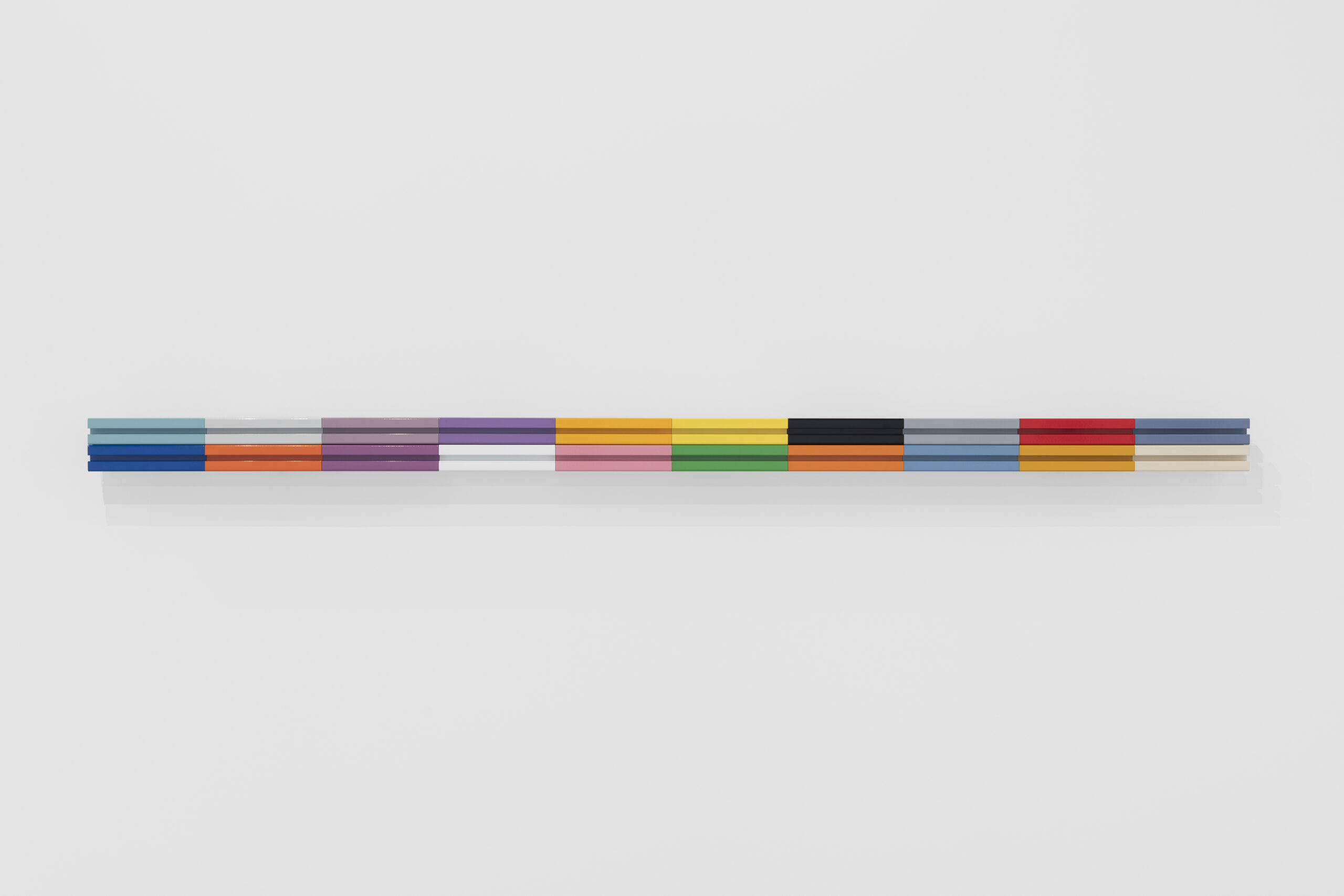
Fact Structures Amount Structures Language Structures
Liam Gillick
KIN is delighted to present Liam Gillick’s new exhibition: Fact Structures Amount Structures Language Structures, opening on March 1st 2024. For this new body of works, exhibited in three different cities, Gillick rethinks what fundamental forms of advanced production might be, and finds inspiration in Marie and Otto Neurath’s Isotype system – illustrated by Gerd Antz – named Fact Pictures, Amount Pictures, Language Pictures; as well as Yuk Hui’s philosophical writing on techno-diversity.
About
Thibaut Henz
Exhibition
08/12 2023 - 03/02 2024
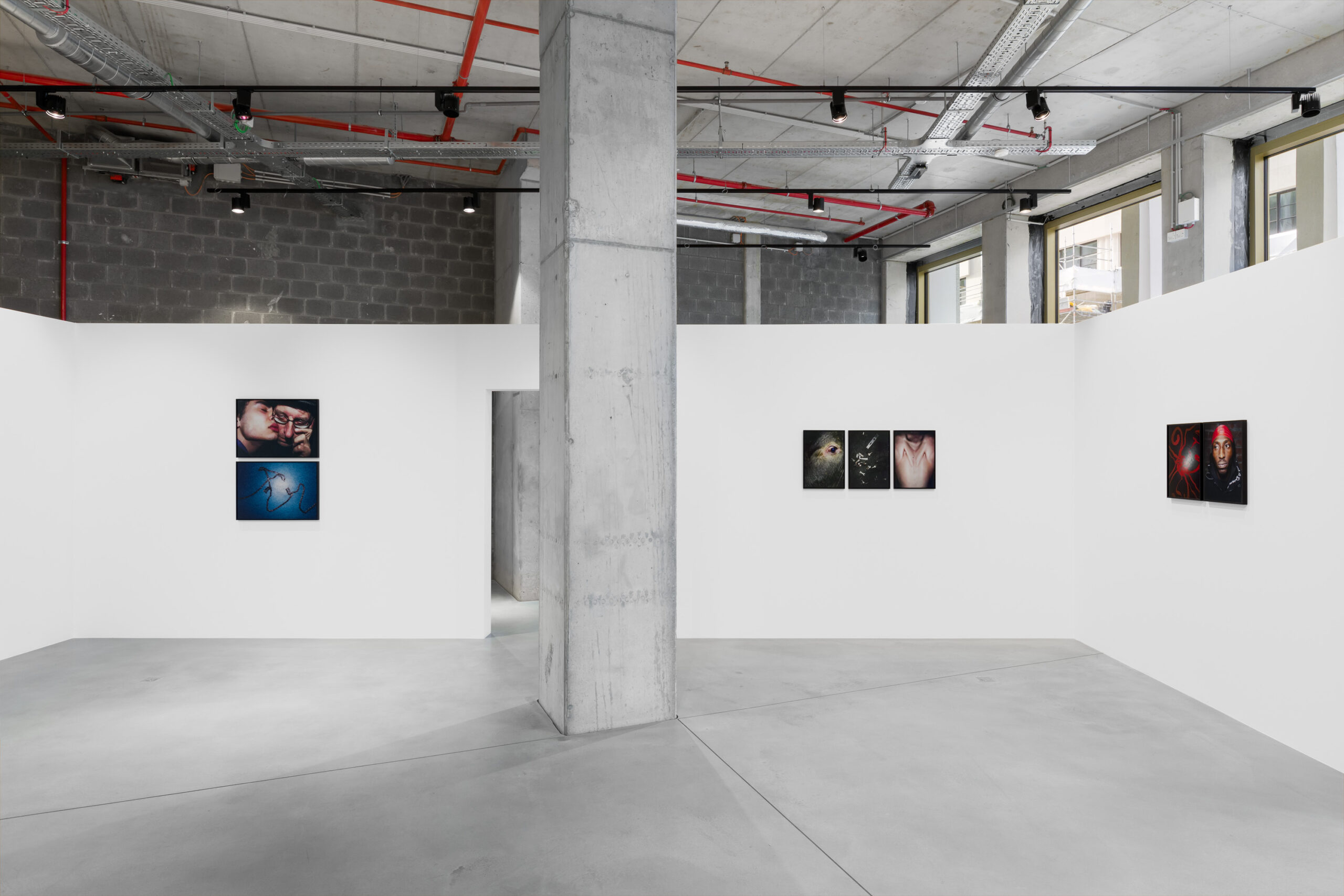
Intervall
Thibaut Henz
Everything that Thibaut Henz photographs bears witness to physicality or to physical closeness, to a connection to things, society and its physiology. Regardless of whether he photographs the human body, animals, plants, spaces, or objects, Henz approaches his motifs in an exploratory movement — not in a reserved way but instead aggressively, observing the subject close up, in extreme cases, even as far as body orifices.
Rather than fulfilling a representational function, Henz’s photographs, often dyptichs, tryptichs or large scale compositions, illustrate the present as a contingency, reflected in coexisting realities, challenging the viewers to consider their own biases and referential contexts, through fantasised violence.
Exhibition
27/10-2/12 2023
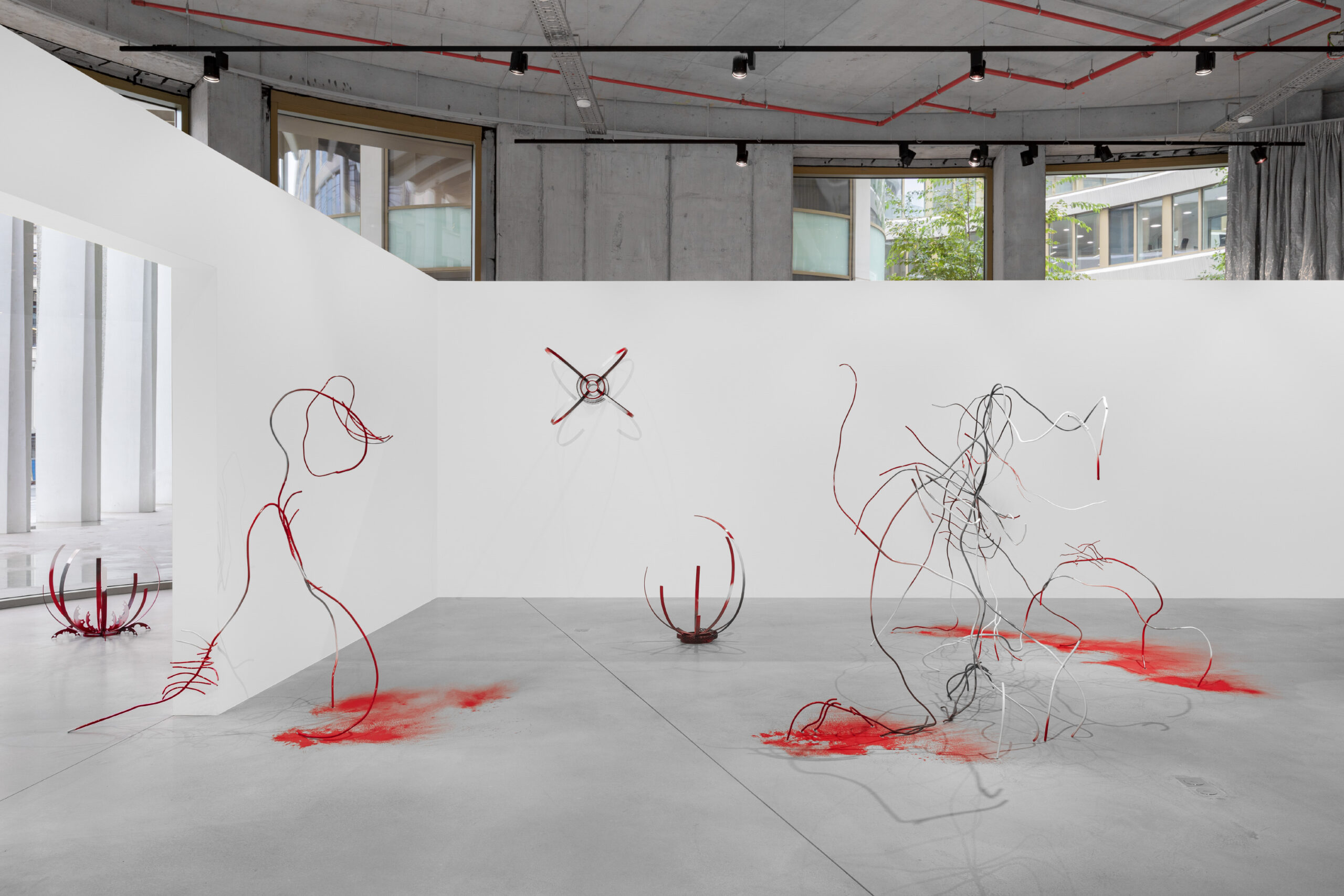
Swarm
Zuza Golińska
Swarm exhibited at KIN continues on the path set by Golińska in her previous works. The sculptures have a strong material presence that result from Golińska’s involvement in producing them within the boundaries of her workshop in the Gdańsk Shipyard. She moves through the metal workshops, scavenging through heaps of scrap metal, selecting, arranging and testing the forms in space. Cooperating with the welders, who used to approach her with disbelief and now are familiar with her presence, she binds and scrapes metal together into sculptures. Or, if the scraps allow it, she bends them into the desired forms. Finally, the rusty metal is partially powder painted in bright colours adding futuristic and painterly dimensions to the final form of the works.
About
Zuza Golińska
Exhibition
07/09-21/10 2023
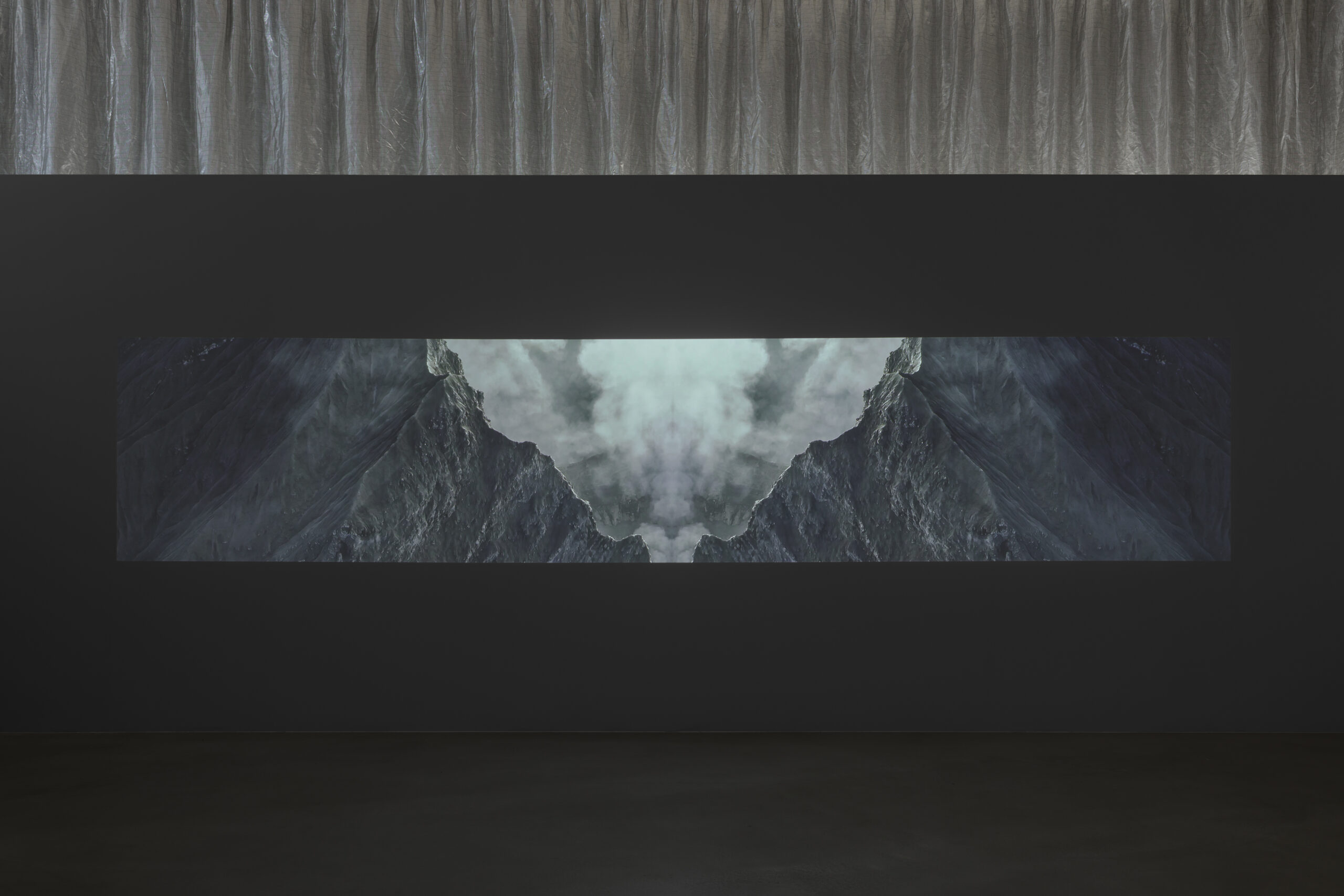
The Desert Turned to Glass
Charles Stankievech
The Desert Turned to Glass is a meditation oscillating between the cosmic and the chthonic. Traveling through vast distances in space and time from outer space to Paleolithic caves, Stankievech entwins science fiction speculation and contemporary theories on the origin of life, consciousness, and art. A meteorite sculpture floats above a sand floor, a psychedelic video crystallizes deep time. Fog, clouds, and smoke venting from volcanic lava flows spill across the screen. At a moment obsessed with planetary endings, the visual dynamism and resonating sound of air recapitulates not only the invention of the concept of atmosphere in the history of meteorology, but also the formation of the earth’s atmosphere in geologic time—in a word, to creation itself. The Desert Turned to Glass calls forth otherworldly experience from within the depths and heights of this world, at the same time cultivating an aesthetic disposition to receive them.
About
Charles Stankievech
A fieldwork engages with the geographic site but then warps one’s perception of the space comparable to a mathematical “strange attractor.” Sharing, on the one hand, the history of art installation and on the other hand, the history of “site-specific” or earthwork art, a fieldwork creates its own temporary architecture within a space or in a landscape. However, such a landscape need not be natural and the architecture may not always be a traditional shelter or sculpture, but can be composed of sonic material, electromagnetic fields, light fluctuations, or relationships. At its core, a fieldwork is dynamic and geospatial.
Exhibition
16/06-29/07 2023
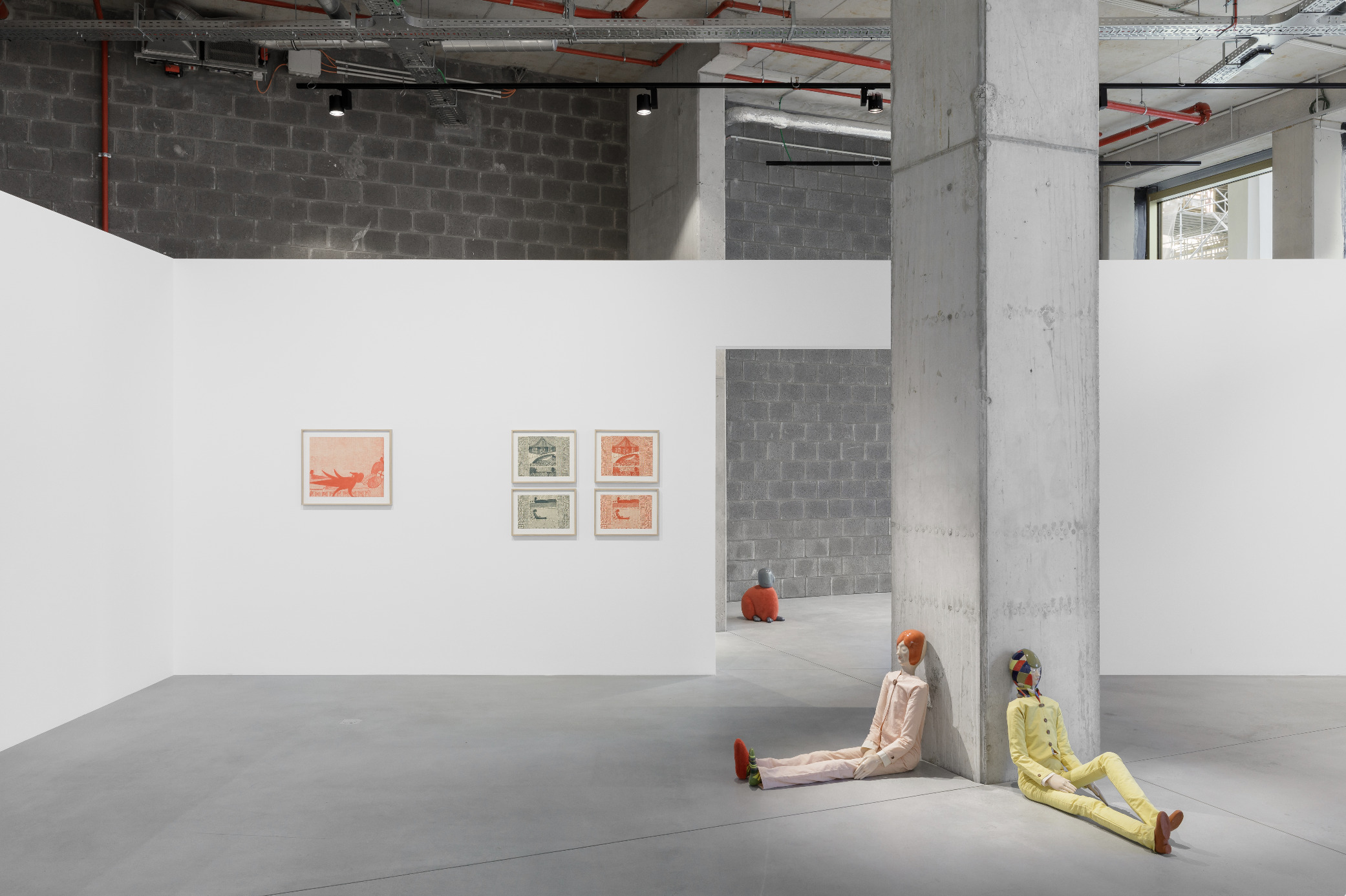
bratki
Dorota Jurczak
For years, Dorota Jurczak has been creating an immensely analogue body of work devoid of digital characteristics. An output that is defined by a deep appreciation for texture, colour and the qualities of physical material. Combined with a fearless approach to expenses, this results in most immersive and tactile works of art. Jurczak’s understanding and consequent interpretation of crafted history has become the signature of her style, evoking a sense of timelessness and permanence. All executed with a confident scratch and little to no admission of a modern world.
